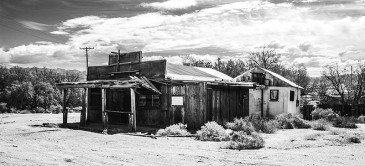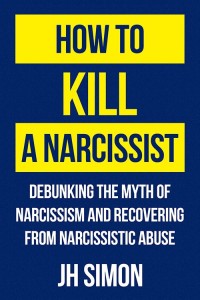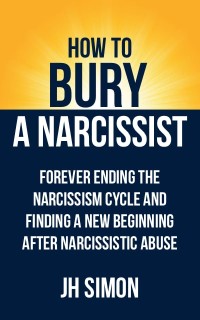Table Of Contents
When you look closely, some scapegoats can appear to be narcissists — but not in the way you would expect, and not from any fault of their own. They are reactive narcissists, trying to salvage some semblance of pride within their family torture.
Who Is The Scapegoat?
The narcissist’s spite never goes away; they only repress it. The narcissist needs someone to dump their disowned rage on — a ‘bad’ child of the family. The narcissist will usually see the second oldest or the most vulnerable as the problem child, and will target them with constant disapproval and abuse.
Where the golden child in a narcissistic family can do no wrong, the scapegoat can do no right. The scapegoat is always framed in a negative light, regardless of the reality, over and over, day in and day out.
Other children in the family unwittingly follow suit, taking the narcissist’s lead by using the scapegoat as an opportunity to unload their own unacknowledged resentment and shame. The scapegoat is usually the first to act out or show symptoms of mental illness, due to the unbearable burden of being the dumping ground for their family’s collective toxic emotions.
The Scapegoat’s Reaction To Abuse
In reaction to the constant belittling by their family, the scapegoat may ‘inflate’ themselves, using grandiosity to shake off the crippling shame they carry. They may boast, or counter-attack, or simply try to set boundaries or verbalise their distress. The rest of the family deal with this in two ways, depending on the situation:
- Attack: When the scapegoat inflates themselves opportunistically using grandiosity to offset feelings of inferiority and worthlessness, the rest of the family will ridicule and attack the scapegoat to ‘put them back in their place’. This is most common at the dinner table or living room, when everyone is in conversation together and the scapegoat ‘dares’ assert themselves.
- Provoke: When other members of the family are feeling insecure or have some excess of negative emotion they want to get rid of, they purposely poke the scapegoat in their sore spots (which were created by the narcissistic parent). This forces the scapegoat to exaggerate their worth in order to fend off the shame of these attacks.
The Sad Reality Of A Narcissistic Family
In a narcissistic family, everyone has some measure of narcissism, because nobody can avoid the narcissistic parent’s grandiose expectations. Just like the flu, it spreads to every member of the house in time because they are so enmeshed. The core difference is how each person responds to it.
The lost child quietly fantasises about their grandiosity, since nobody acknowledges it in the real world. The golden child lives out their narcissism in the eyes of the narcissistic parent. The divine child (youngest) revels in their grandiosity by being sweet and adorable. The scapegoat expresses their grandiosity in short, desperate bursts which are never tolerated. The scapegoat is being psychologically waterboarded with shame, always gasping for air (self-worth).
The family drama created by the narcissistic parent cannot be ignored, and creates in the members a ‘narcissistic mentality’, wherein life is all about trying to remain on the ‘good’ and ‘better’ side of the scale.
Duality, i.e. good and bad, becomes reality. Love, comfort, nurture, evolution, empathy — none of it is offered. The scale is everything, blanketing the entire family experience, suffocating any sense of spiritual calm anyone may experience. As the repression builds in the collective family unit, it is the scapegoat who carries the burden for everyone else.
The Scapegoat’s Difficult Strategy For Escape
How does a scapegoat escape from this excruciating, eternal hell?
Not easily.
Yet it can be done. First, the scapegoat has to acknowledge that the damage is deeply enmeshed in them, and will cripple their attempts at recovery.
The scapegoat must also acknowledge that they will never find salvation in their family home — they need to move to a new playing field. The scapegoat must let go of the Sisyphean pursuit of approval from their narcissistic family.
The scapegoat must, above all, let go of their grandiosity as a coping mechanism, and instead gradually acknowledge their anger at being mistreated.
Letting go of the need for approval from their family and their coping mechanisms, the scapegoat falls into a pit of pain, fear and uncertainty. Alone in the wilderness of the world, crippled by shame, rage and trauma, the scapegoat will be prone to step into new groups and situations where their role can be reprised through repetition compulsion. They must watch out for this unconscious process at all times.
The scapegoat must painstakingly create a new identity, and have the courage to shed their old one. Not being the ‘worthless idiot’ is of course possible for them if they can create this reality. They achieve this by challenging their beliefs about themselves and weaving new experiences which counter the lies of their family of origin.
Taking On The Darkness
The scapegoat’s shadow will be their heaviest burden. The positive attributes which their narcissistic family rejected are still there, submerged in toxic shame, trauma and despair. Diving in and reclaiming these will be extremely difficult work.
In time, the scapegoat will learn that their harshest critic was not their narcissistic parent and family, but themselves. It remains with them as a critical voice in their head, badgering them, attacking everything they do. Exploring it and exposing it will be critical to recovery.
The scapegoat will need help. Their shadow is far more formidable than that of others, and navigating the depths will need a lifeline to the surface, otherwise it may consume them. A therapist, a support group, even a loving friend can provide this to varying degrees, and give the rope a ‘nudge’ to make sure the scapegoat is ok when the depths of their shadow overwhelm them.
The Warrior Scapegoat
The scapegoat, contrary to the opinion of their family, is a warrior with a monster will. They have withstood hell, and somehow remained standing. Their tenacity is unparalleled, and when directed away from the shitstorm of their family can be channelled toward recovery with profound effect.
Lastly, and most importantly, the term ‘scapegoat’ must be written and placed on the wall and looked at every day. As a person takes the journey toward recovery, withstanding the countless days of hell and confusion, a day should come when they feel ready to drop that term and embrace a new way of being where no terms are needed.
The scapegoat is a human being who is complex, terrible and wonderful at the same time, with the potential to be anything. When this realisation hits the scapegoat, they should rip that piece of paper off the wall, scrunch it up and toss it in the bin. And never look back.














